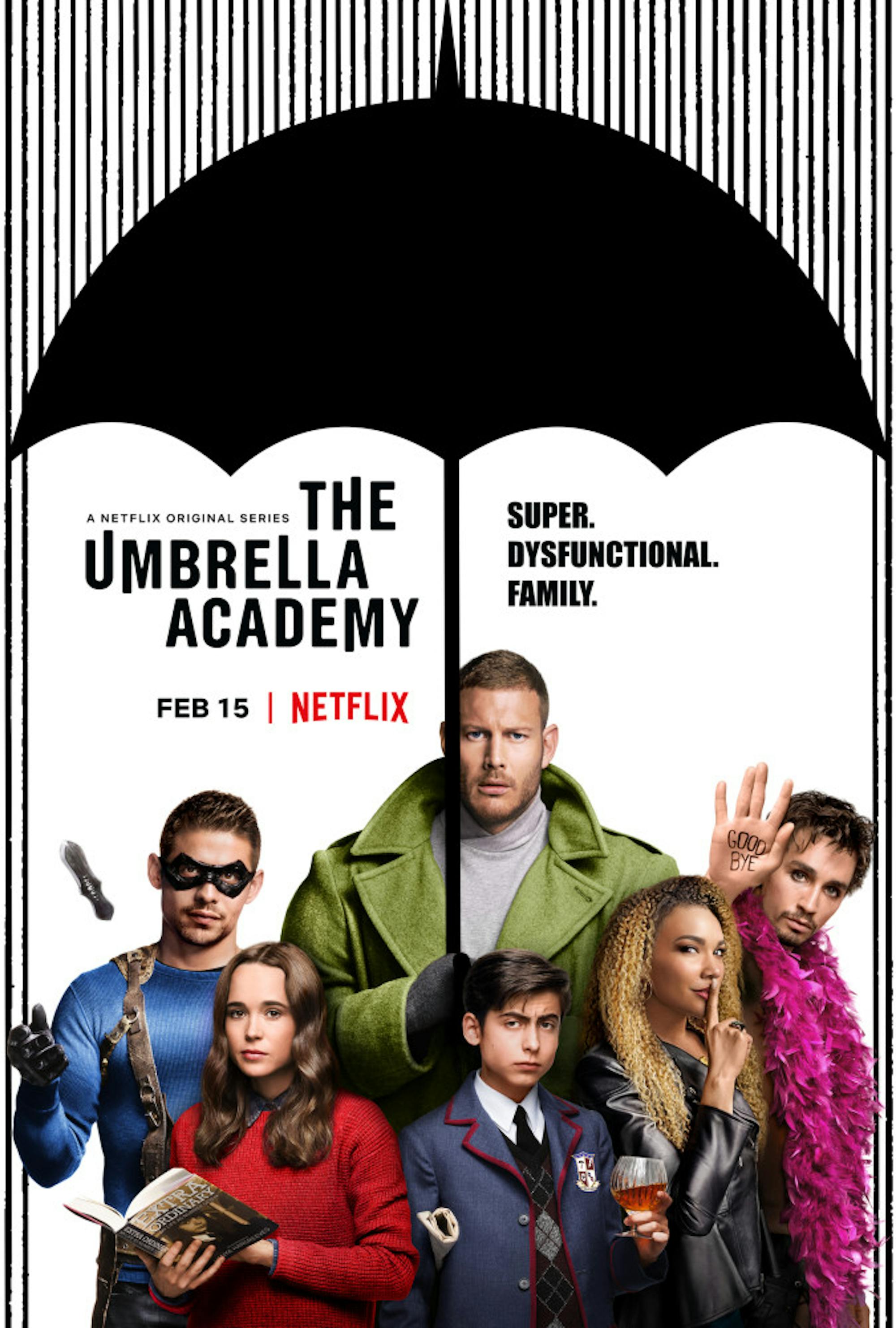In March 2013, fans of “My Chemical Romance” were heartbroken upon receiving a tweet from frontman Gerard Way announcing the official breakup of the beloved emo rock band. Now, nearly six years later, Mr. Way has once again played a vital role in the creation of a pop-culture phenomenon, albeit not in the manner one might expect.
The new Netflix show “The Umbrella Academy” (2018–), based on a series of comic books written and illustrated by Mr. Way, can best be described as a surprising but delightful cross between “The Avengers” (2012) and “Sense8” (2015–2018). In 1989, 43 women around the world spontaneously give birth despite not having been pregnant the day before. Eccentric billionaire Sir Reginald Hargreeves (Colm Feore) adopts seven of the children and rigorously trains them to become a team of crime-fighting superheroes. Although they have long since gone their separate ways, five of the seven return to their childhood home after learning their father has died, only to discover that the entirety of human civilization will be destroyed in eight days. Though the series certainly struggles with pacing — all of these events occur in the pilot alone — it is clearly the characters, and not the plot, that are intended to serve as the driving force of the show.
We are first introduced to our protagonists in a beautiful and clever succession of scenes that appear like tableaus in how they manage to capture the essence of each character with only a few brief shots: Luther (Tom Hopper) completing a daring mission on the moon; Allison (Emmy Raver-Lampman) posing on the red carpet at her movie premiere; Diego (David Castañeda) rescuing a hostage family; and Klaus (Robert Sheehan), leaving rehab for the nth time. However, in between each of these moments, the camera returns to Vanya (Ellen Page) performing a gorgeous violin recital in a gigantic concert hall without an audience. Thus, we immediately develop an understanding of the personal identities of the characters, making the show’s focus on their interactions all the more enrapturing. The fact that the cast is both incredibly talented and diverse also helps draw viewers in, as it allows the series to be not just more enjoyable but more believable as well.
One would probably not expect a series about troubled siblings tasked with saving the world to be humorous, but “The Umbrella Academy” is often quite hilarious, mostly because it manages to be self-aware without coming across as pretentious. For example, the father’s assistant and prior caretaker of the children is a monkey who speaks and dresses like an intellectual, elderly man (complete with a wooden cane). So it does not come as a surprise when we learn that their mother is a robot. However, in terms of entertaining dialogue, Robert Sheehan truly steals the show. As though being a drug addict is not already enough to create a dichotomy between Klaus and his siblings, he is also foul-mouthed and flamboyant, and apparently possesses no other objective then to provoke reactions from the others. Indeed, the dialogue in “The Umbrella Academy” is rapid and feisty, lending itself perfectly to the fast-paced nature of the show.
Occasionally, however, we need to rest and recharge, and “The Umbrella Academy” knows that. One of the most charming scenes in the pilot occurs when the series puts itself on pause. Although the characters have just returned home, and tensions are high, they begin to dance to the soundtrack, gradually gaining enthusiasm, until they can no longer contain themselves. They let themselves get completely lost in the music, vanquishing the stress from their bodies. Towards the end of this performance, the camera slowly zooms out, and we see all five simultaneously, separate in their own rooms and yet together as one. They may be savoring the moment a bit too much, but go easy on them. After all, they still have eight days left.
Netflix's 'The Umbrella Academy' carves new niche in superhero television

A promotional poster for Netflix's 'The Umbrella Academy' is pictured.
Summary
New Netflix original series redefines the role of the superhero in television.
4.5 Stars





